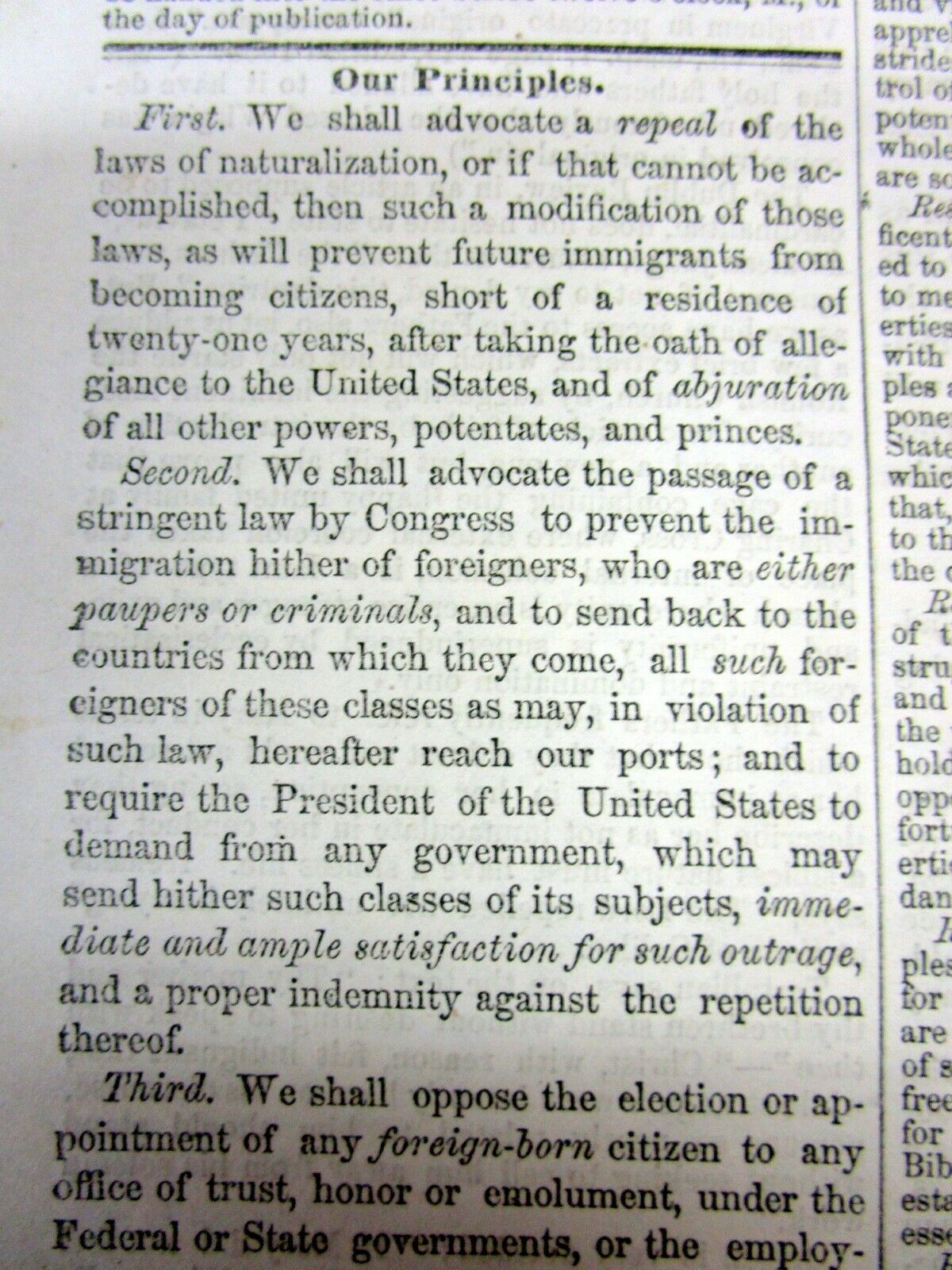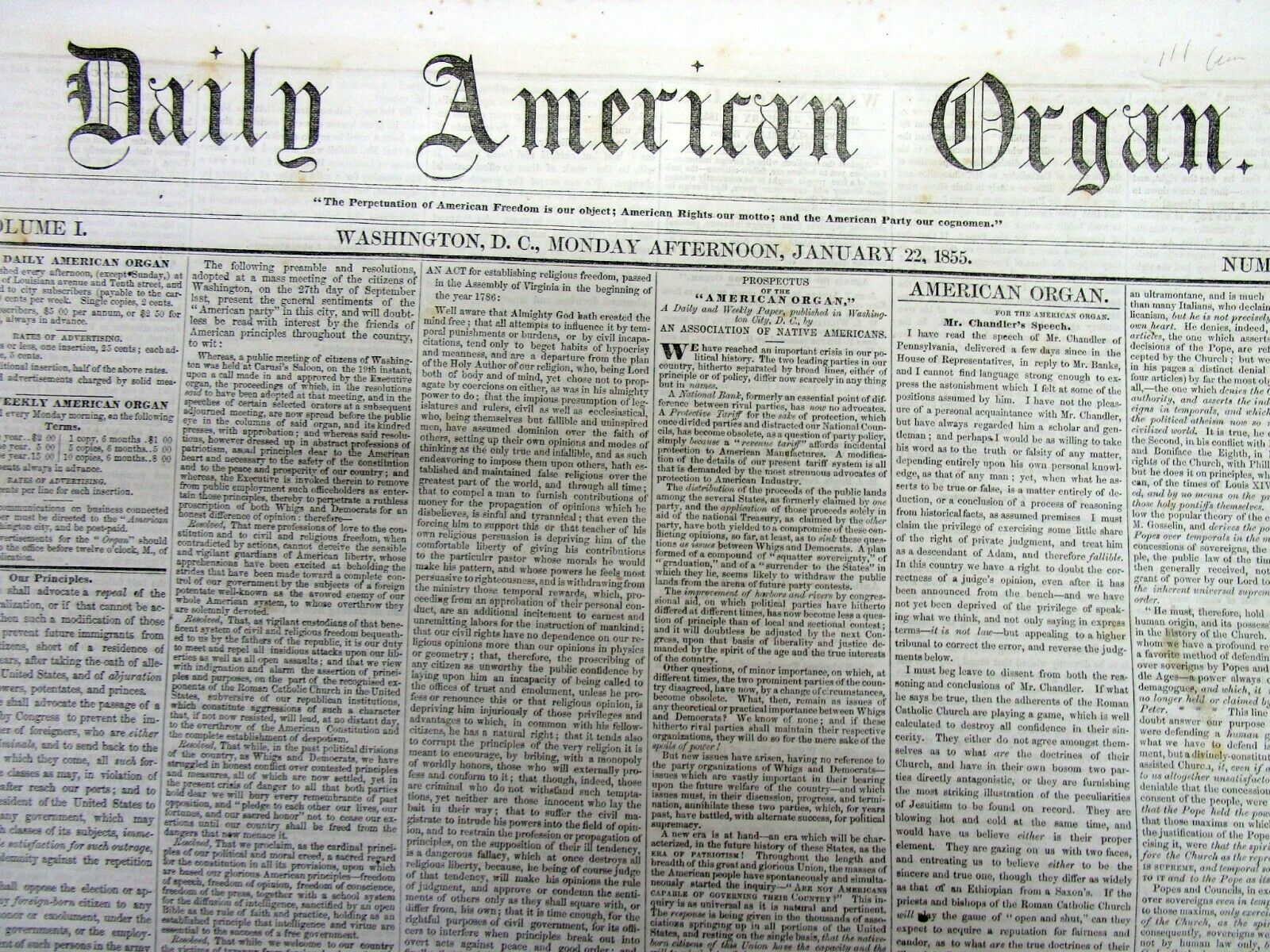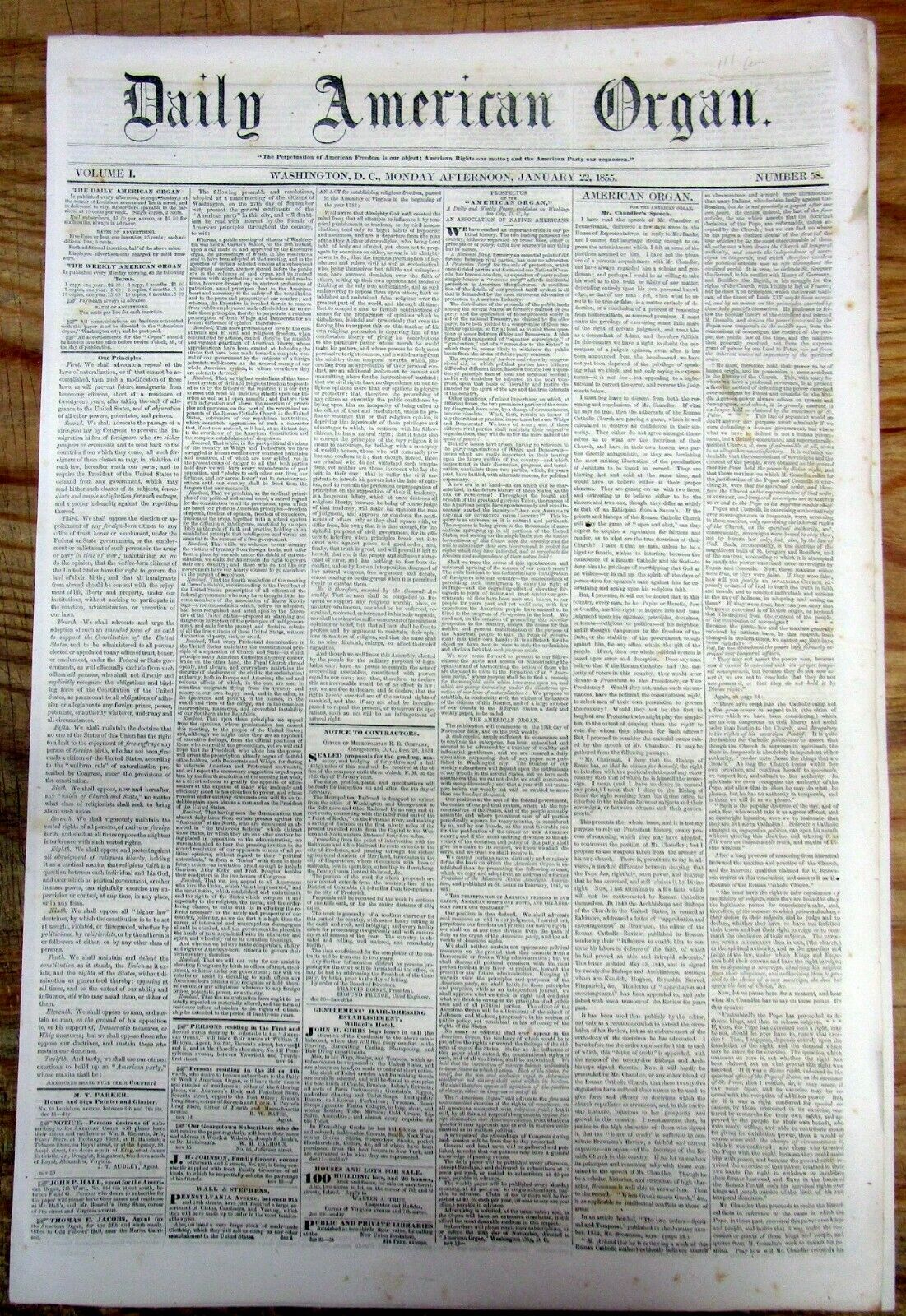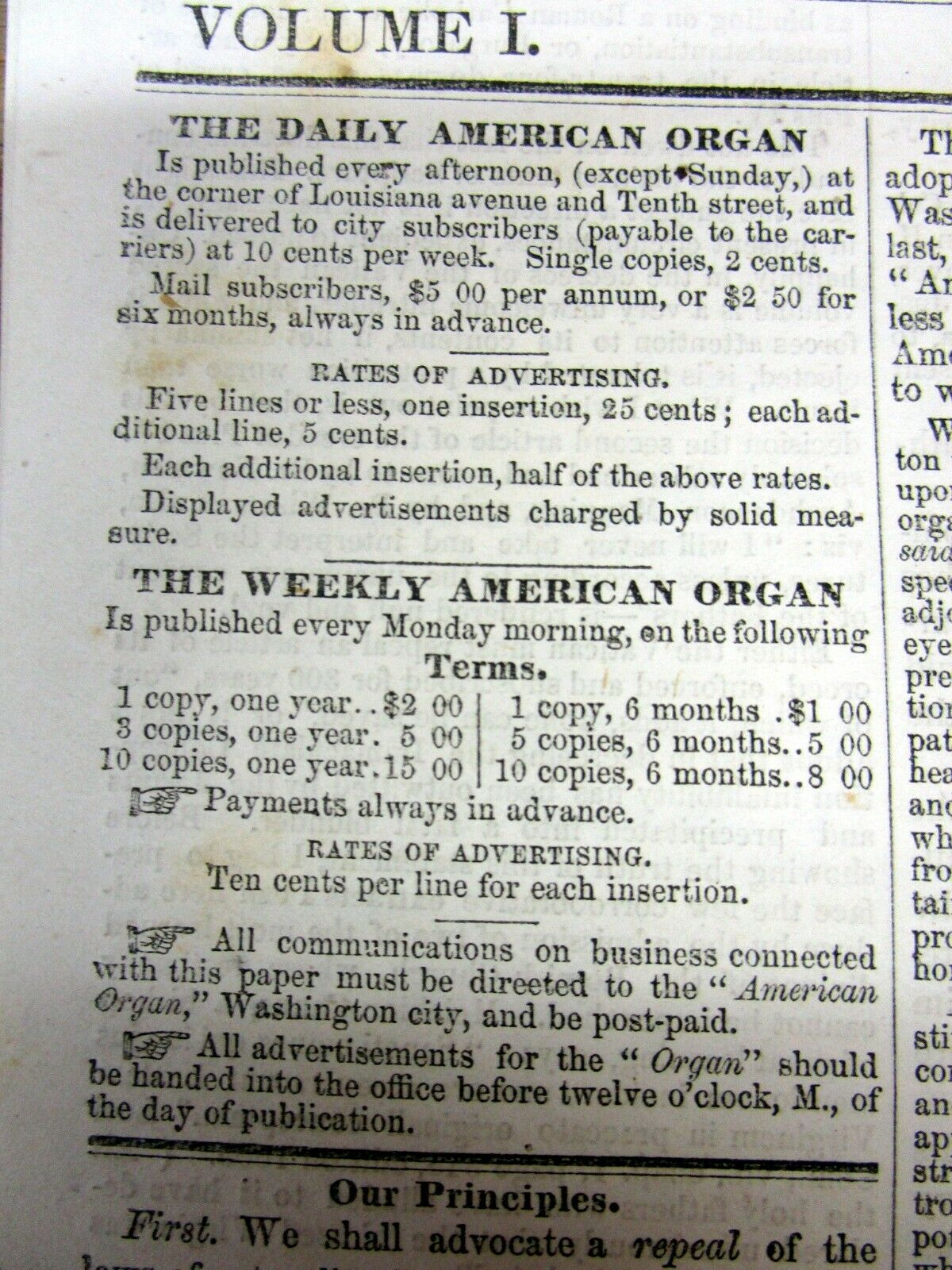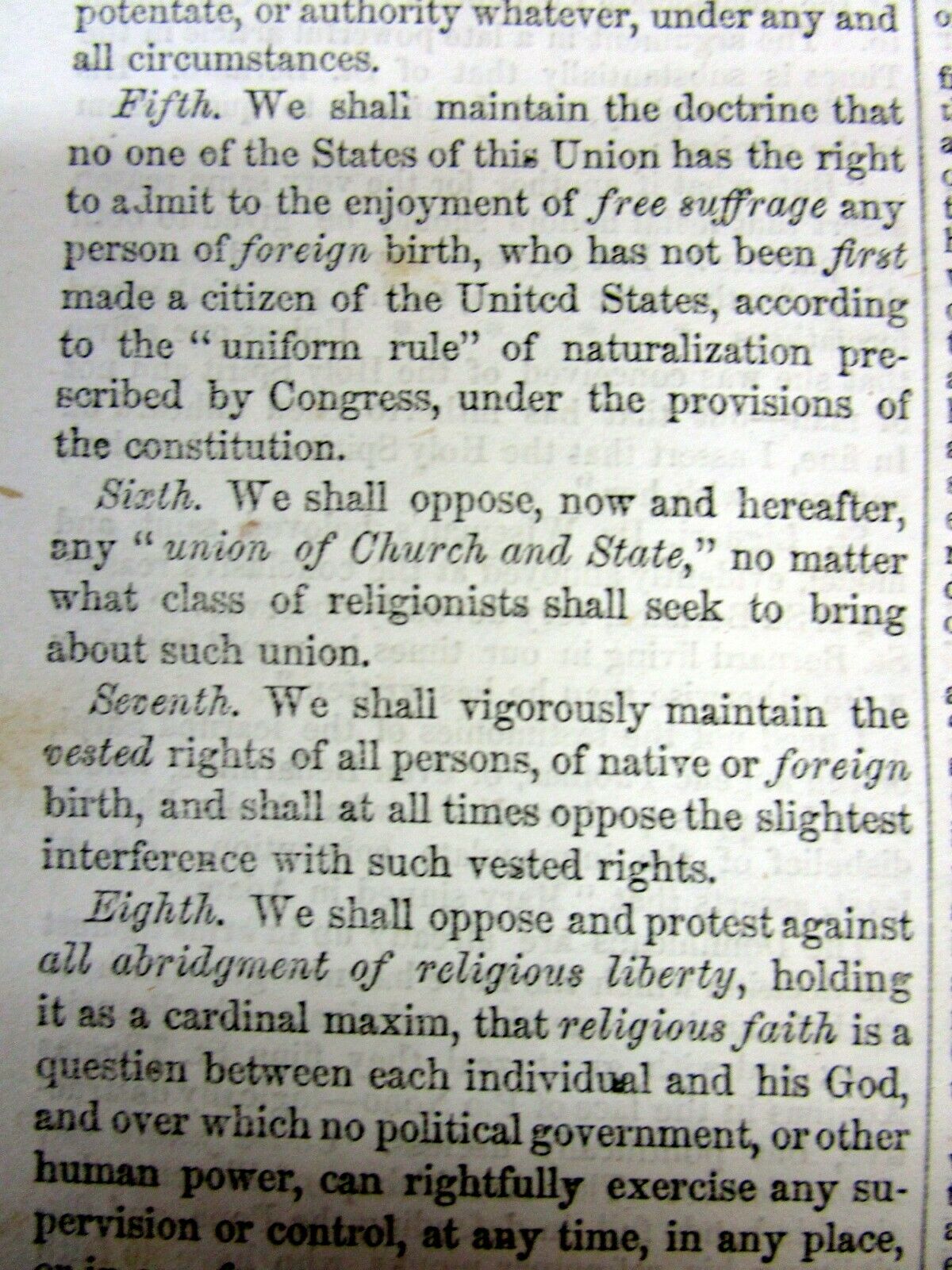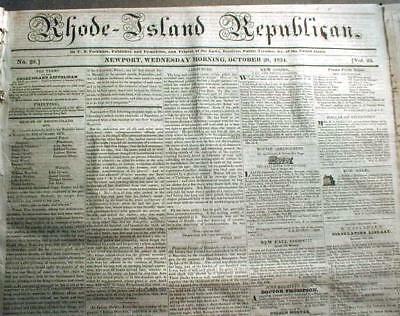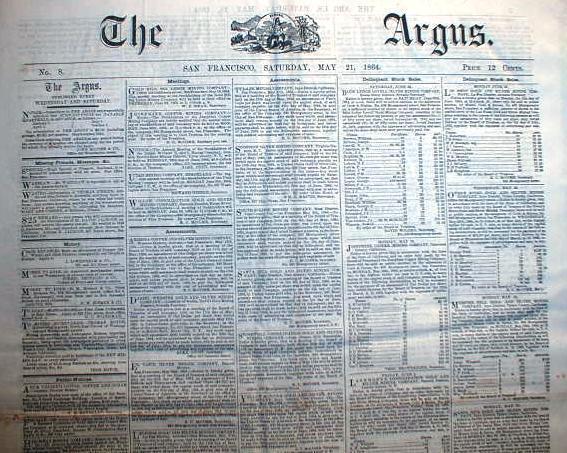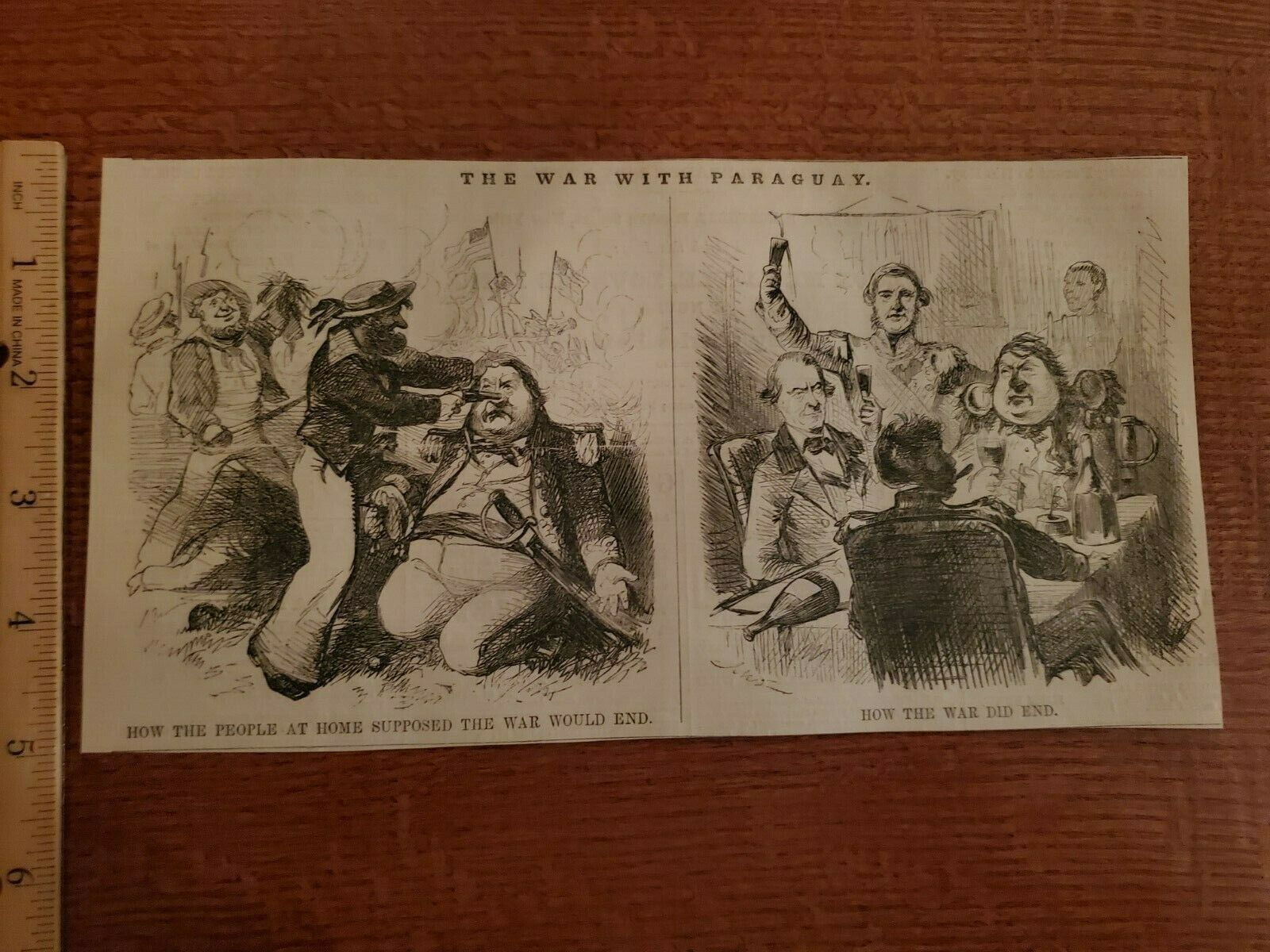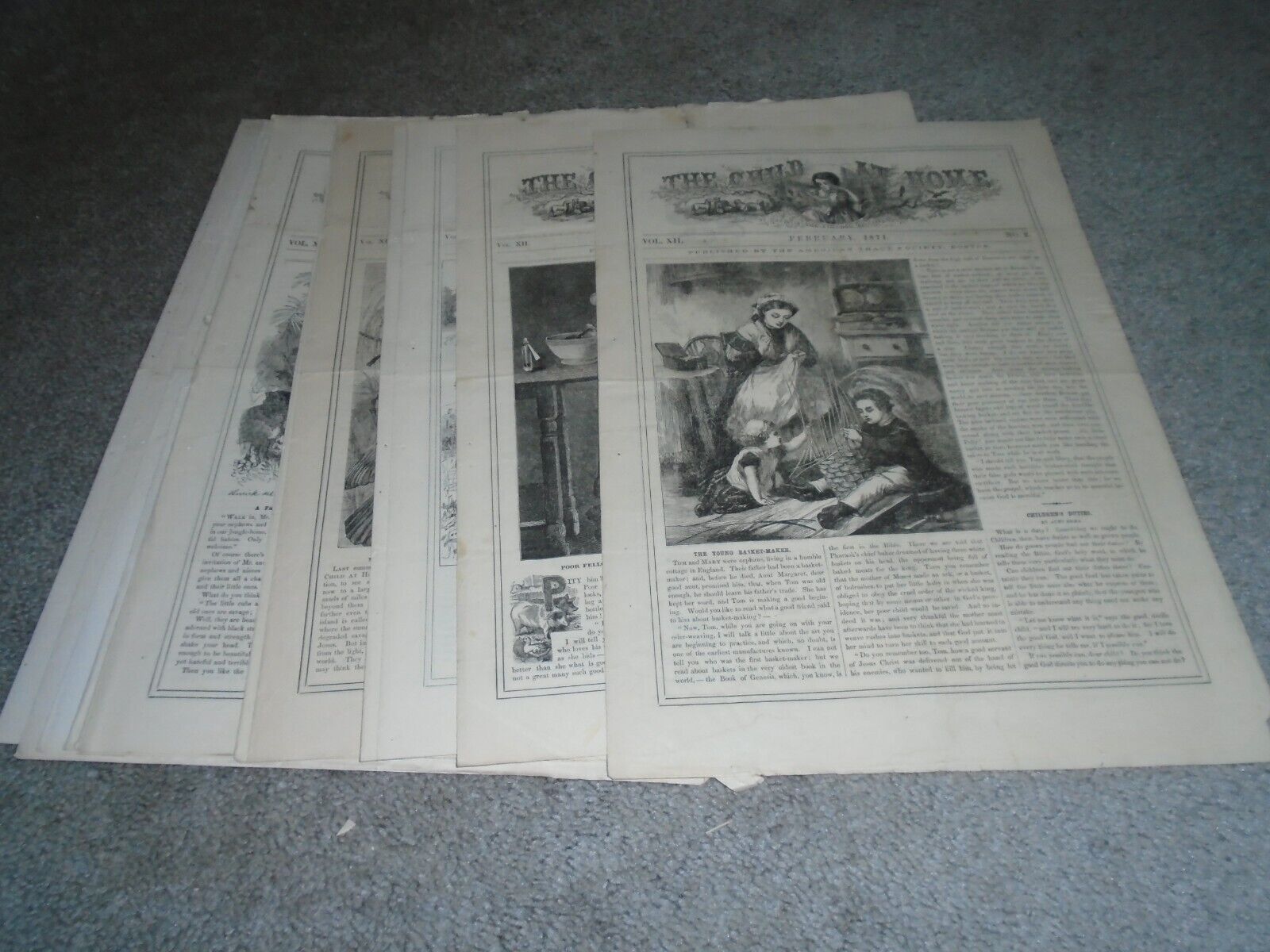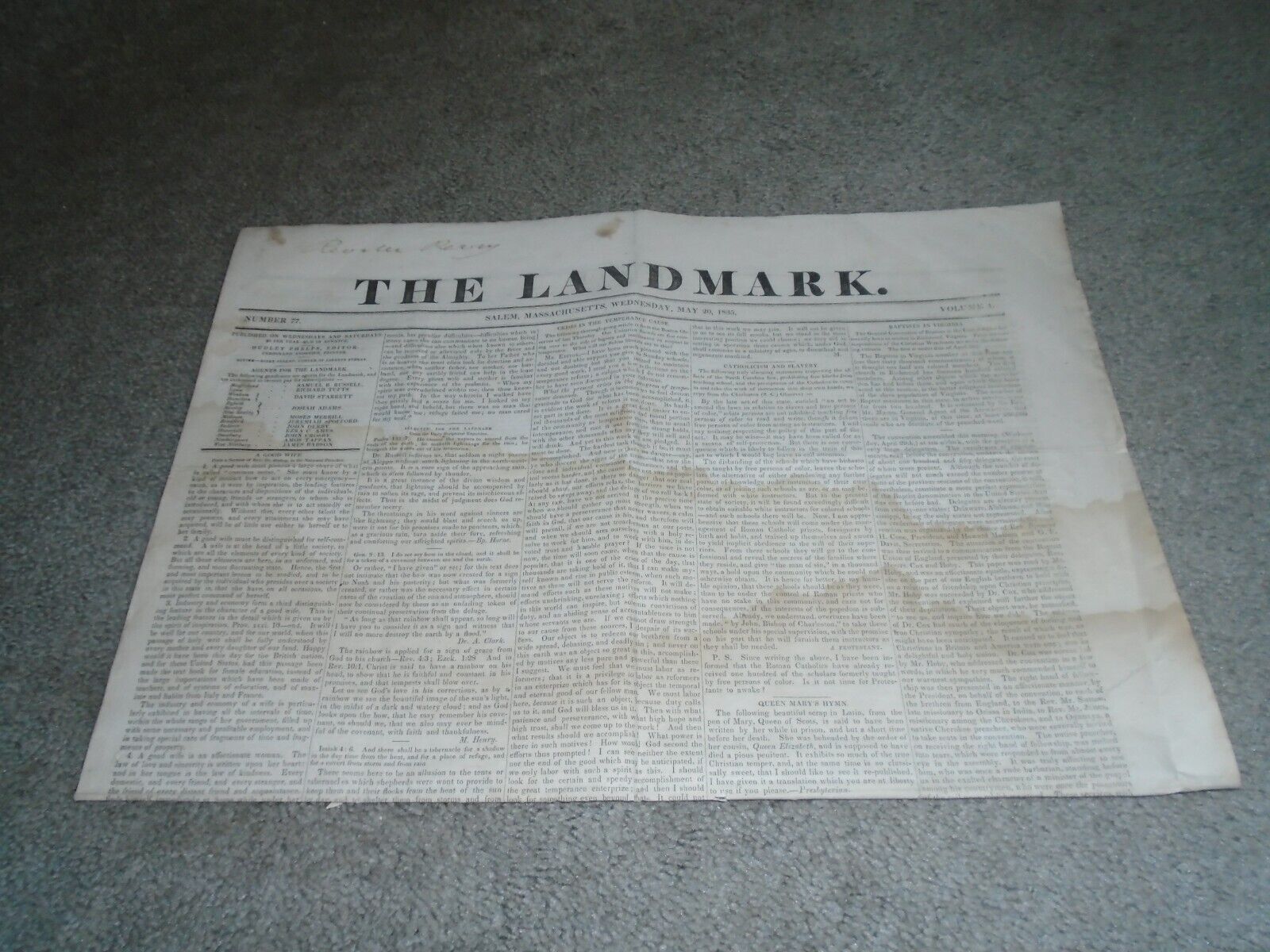-40%
Rare 1855 KNOW NOTHING PARTY newspaper lists their ANTI-IMMIGRANT PRINCIPLES
$ 18.48
- Description
- Size Guide
Description
Rare 1855 KNOW NOTHING PARTY newspaper listing their ANTI-IMMIGRANT PRINCIPLESRare original 1855 KNOW NOTHING PARTY newspaper listing their ANTI-IMMIGRANT PRINCIPLES
- inv # 6Q-232 & generic
Please visit our
EBAY STORE
for THOUSANDS MORE HISTORICAL NEWSPAPERS for SALE or at auction
SEE PHOTO(s) - COMPLETE ORIGINAL political campaign NEWSPAPER, the
Daily American Organ
(Washington, DC) dated in 1855.
This original
Daily American Organ
newspaper
was published in support of the
"KNOW NOTHINGS" (aka the American Party).
This AMERICAN PARTY newspaper (aka- the "Know Nothing Party") contains a front page complete column headlined: "OUR PRINCIPALS" with a detailed list of the 12 principals of the "KNOW KNOTHING" Party. The list ends with the printed slogan: "AMERICANS SHALL RULE THEIR COUNTRY !"
Very rare 1855 "KNOW NOTHING" Political Party newspaper with its ANTI-IMMIGRANT point of view
The Daily American Organ was published in Washington, D.C., by An Association for Native Americans and ran from November 13, 1854 to November 14, 1856. As a platform for the American Party, also referred to as the Know-Nothings, the paper was printed every afternoon Monday through Saturday, and a weekly edition, the Weekly American Organ, was printed every Monday morning. The paper's slogan, "The perpetuation of American freedom is our object; American rights our motto; and the American Party our cognomen," appeared underneath the masthead. A prospectus printed in the first issue predicted a new era of patriotism in the United States, one in which the American Party would take on the "manifold evils that have come upon us," which were due to the "disastrous operation of our laws of naturalization." The Daily American Organ as a forum for political discussion was important to the formalization of the American Party's stances during election cycles. Restricting immigration was of primary importance; the party was against allowing immigrants the right to vote or hold public office, and was for instituting a 21-year naturalization period. The American Party reached the height of its popularity in the 1850s.
The Know Nothings were a nativist political party and movement in the United States in the mid-1850s. Despite using the "Native American Party" name, its membership consisted of the descendants of colonists or settlers and did not include indigenous Native Americans.
The Know Nothings were originally a secret society. It was primarily an anti-Catholic, Anti-Irish, anti-immigration, populist and xenophobic movement. It was progressive in its stances on "issues of labor rights, opposition to slavery, and the need for more government spending" as well as for its "support for an expansion of the rights of women, regulation of industry, and support of measures designed to improve the status of working people." It was a forerunner to the temperance movement in the United States. The Know Nothing movement briefly emerged as a major political party in the form of the American Party. Adherents to the movement were to simply reply "I know nothing" when asked about its specifics by outsiders, providing the group with its common name.
Supporters of the Know Nothing movement believed that an alleged "Romanist" conspiracy was being planned to subvert civil and religious liberty in the United States, and sought to politically organize native-born Protestants in what they described as a defense of their traditional religious and political values. The Know Nothing movement is remembered for this theme because of fears by Protestants that Catholic priests and bishops would control a large bloc of voters. In most places, the ideology and influence of the Know Nothing movement lasted only a year or two before disintegrating due to weak and inexperienced local leaders, a lack of publicly declared national leaders, and a deep split over the issue of slavery. In the South, the party did not emphasize anti-Catholicism as frequently as it did in the North and stressed a neutral position on slavery, but it became the main alternative to the dominant Democratic Party.
The collapse of the Whig Party after the passage of the Kansas–Nebraska Act left an opening for the emergence of a new major political party in opposition to the Democratic Party. The Know Nothing movement managed to elect congressman Nathaniel P. Banks of Massachusetts and several other individuals in the 1854 elections into office, and subsequently coalesced into a new political party known as the American Party. Particularly in the South, the American Party served as a vehicle for politicians opposed to the Democrats. Many also hoped that it would stake out a middle ground between the pro-slavery positions of Democratic politicians and the radical anti-slavery positions of the rapidly emerging Republican Party. The American Party nominated former President Millard Fillmore in the 1856 presidential election, although he kept quiet about his membership, and personally refrained from supporting the Know Nothing movement's activities and ideology. Fillmore received 21.5% of the popular vote in the 1856 presidential election, finishing behind the Democratic and Republican nominees.
The party entered a period of rapid decline after Fillmore's loss in the 1856 presidential election and the Dred Scott v. Sandford decision of the Supreme Court of the United States in 1857 further galvanized opposition to slavery in the North, causing many former Know Nothings to join the Republicans. The remnants of the American Party largely became part of the Constitutional Union Party in 1860 and disappeared during the American Civil War.
Good-Very good condition. The exact date in 1855 is selected at random from our inventory of this title. This listing includes the complete entire original newspaper, NOT just a clipping or a page of it. STEPHEN A. GOLDMAN HISTORICAL NEWSPAPERS stands behind all of the items that we sell with a no questions asked, money back guarantee. Every item we sell is an original newspaper printed on the date indicated at the beginning of its description. U.S. buyers pay priority mail postage which includes waterproof plastic and a heavy cardboard flat to protect the purchased item from damage in the mail. Upon request by the buyer, we can ship by USPS Media Mail to reduce postage cost; however, please be aware that USPS Media Mail can be very slow in its time of transit to the buyer. International postage is quoted when we are informed as to where the package is to be sent. We do combine postage (to reduce postage costs) for multiple purchases sent in the same package.
We list thousands of rare newspapers with dates from 1570 through 2004 on Ebay each week. This is truly SIX CENTURIES OF HISTORY that YOU CAN OWN!
Stephen A. Goldman Historical Newspapers has been in the business of buying and selling historical newspapers for over 50 years. Dr. Goldman is a consultant to the Freedom Forum Newseum and a member of the American Antiquarian Society. You can buy with confidence from us, knowing that we stand behind all of our historical items with a 100% money back guarantee. Let our 50+ years of experience work for YOU ! We have hundreds of thousands of historical newspapers (and their very early precursors) for sale.
Stephen A. Goldman Historical Newspapers
has been in the business of buying and selling historical newspapers for over 50 years. We are located in the charming Maryland Eastern Shore town of OXFORD, Maryland.
Dr. Goldman is a consultant to the Freedom Forum Newseum and a member of the American Antiquarian Society. You can buy with confidence from us, knowing that we stand behind all of our historical items with a 100% money back guarantee. Let our 50+ years of experience work for YOU ! We have hundreds of thousands of historical newspapers (and their very early precursors) for sale.
We invite customer requests for historical newspapers that are not yet located in our extensive Ebay listing of items. With an inventory of nearly a million historical newspapers (and their early precursors) we are likely have just the one
YOU
are searching for.
WE ARE ALSO ACTIVE BUYERS OF HISTORICAL NEWSPAPERS, including large and small personal collections, bound volumes, significant individual issues, or deaccessions from libraries and historical societies. IF YOU WANT TO SELL, WE WANT TO BUY !!!
Powered by SixBit's eCommerce Solution
